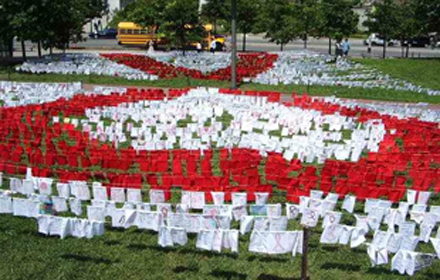Aids: A silient deadly threat in the far South
Mere mentioning of the deep South tends to automatically draw the attention of most individuals to the violence problem which has gripped the region for nine successive years with little hope of an early end to the problem. Most of them are totally unaware that the region is also facing another deadly threat – that is Aids – which has siliently killed hundreds of Aids sufferers and is spreading among young Malay Muslims.

In the three southernmost provinces of Yala, Pattani and Narathiwat, Aids infection was first diagnosed among drug addicts especially in the age group of 18 years up. Then the virus spread to other age groups, working people and finally into the families affecting housewives. Controlling the spread of the HIV virus is problematic because of little awareness of the disease among the Malay Muslims and their lackluster participation in prevention campaign.
Information from Narathiwat provincial health office shows that there are altogether 2,370 Aids cases in 13 districts of the province as of last December 1. Of these, 603 victims have already died and the rest of them are undergoing treatment and have been provided with anti-Aids medication on monthly basis. However, it is believed that the actual figure of the Aids-infected people may be much higher as many of them have chosen not to seek treatment for fear of social stigmatization.
Of the 2,370 Aids cases, 51 percent of them are classified as general workers, 11 percent are in the farming sector and seven percent are housewives. Infection rate among teenagers tend to increase steadily due to lack of knowledge about safe sex and Aids and also their refusal to use condoms.
Ms Anthika Semsan, a coordinator of a non-governmental organization dedicated to prevention if Aids in local communities in the South, admitted that it is difficult to find someone with experience in taking care of Aids sufferers among Muslim communities, although people in the communities are open to outside help.
She said that most people in the local communities still regard Aids sufferers as bad people and not as patients and they have refused the dead victims to be buried in the same cemetery with the ordinary Muslims.
Citing an Aids case in Tha Sala district of Nakhon Si Thammarat, Mrs Anthika said she once visited the patient who was a fisherman with drug abuse history. She said that relatives of the victim refused to take care of the victim until he died. Eventually, his wife who was also infected, believed from her husband, also died from the disease, she added.
To prevent the deadly virus from spreading into the families, the Aids worker suggested mandatory blood testings among couples before their marriage and the practice of safe sex with the use of condoms.
Mrs Anthika said Aids workers in the deep South claimed that Aids infection among teenagers in the restive region was more serious than was previously thought. Several young Muslim couples who further their study in Nakhon Si Thammarat are living together and have sexual relationships.
Another problem contributing to the spread of the disease in the deep South is that there are several transgender Muslim men who work as sex workers in Malaysia during the weekends, said Mrs Anthika, adding that Malaysian law prohibits unmarried couples from opening a hotel room but is more relaxed with men sharing the same room hence the loophole for prostitution for transgender Muslim men from southern Thailand.
------------------------------------------------------------------------------------------------------------------------
Caption : Getting to Zero from http://www.who.int/hiv/en/
